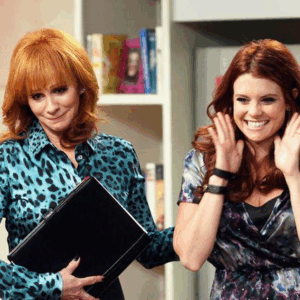In a recent turn of events, it has been reported that Prince Harry will not be meeting with either his brother, Prince William, or their father, King Charles III, during his upcoming trip to the United Kingdom.
This news has sparked considerable speculation and discussion among royal observers and fans alike, as it underscores the ongoing complexities in the relationships among the members of the British royal family.
The dynamics at play reflect both personal and institutional factors that have influenced the interactions of the royals in recent years.

The decision for Harry to forgo meetings with William and Charles appears to be influenced by a variety of factors, chief among them being the strained relationships that have developed over time.
Since stepping back from royal duties in early 2020, Harry’s life has undergone a significant transformation.
He and his wife, Meghan Markle, made headlines with their decision to leave behind their official roles within the monarchy,
seeking instead to establish their own identities and pursue opportunities in the United States.
This shift was not without its ramifications, and it led to a widening rift between Harry and his family members.
One of the core reasons cited for the absence of meetings during this trip is the ongoing tension between Harry and William.
The brothers, once very close, have faced challenges that have put a strain on their relationship. Reports suggest that their differing approaches
to royal duties and public life have fueled misunderstandings and disagreements.
William, who is now first in line to the throne, has adopted a more traditional view of royal responsibilities,

while Harry has sought to carve out a path that prioritizes personal well-being and mental health.
These contrasting perspectives have inevitably led to friction, making a face-to-face meeting less feasible during this visit.
Additionally, the family dynamics have been further complicated by Harry’s candid discussions about his experiences within the royal family. In interviews and public statements, he has shared insights into his struggles with mental health, the pressures of royal life, and even conflicts with the media. While these revelations have resonated with many people around the world, they have also created an atmosphere of tension within the royal household. It is understandable that Charles and William might feel apprehensive about meeting with Harry, given the potential for uncomfortable conversations and lingering resentments.

Moreover, King Charles’s role as the new monarch adds another layer of complexity to the situation. Following the death of Queen Elizabeth II, the royal family has been navigating a period of transition, and Charles is focused on establishing his reign and fulfilling his duties as king. This focus on royal obligations may make personal meetings with family members seem less urgent, especially if there are unresolved issues that could overshadow more formal engagements. As he works to solidify his position, the last thing Charles might want is to invite a conversation that could lead to public speculation or further scrutiny from the media.
The timing of Harry’s visit also plays a crucial role in this narrative. Royal family schedules are often packed with engagements, ceremonies, and public appearances. With so much going on, it can be challenging for family members to carve out time for personal discussions. This logistical aspect cannot be overlooked, as it reflects the realities of royal life and the demands that come with public service. When combined with the existing tension, it is perhaps not surprising that Harry has chosen to avoid meetings on this occasion.

Another important factor in this situation is the influence of public opinion and media scrutiny. Since their departure from royal duties, Harry and Meghan have been the subjects of intense media attention, often facing criticism for their choices and lifestyle. This scrutiny can create an environment of distrust and wariness, making it difficult for family members to engage openly. Charles and William may be cautious about meeting Harry in a context where their interactions could be interpreted or distorted by the press, leading to further complications.
Additionally, Harry’s own commitments in the U.S. may contribute to his decision not to meet with his family. Since relocating, he has become deeply involved in various philanthropic endeavors and personal projects, which have defined his new life outside of the monarchy. As he builds his own narrative, he may feel less inclined to engage with the traditional structures of royal life, choosing instead to prioritize his own path.

Ultimately, the decision not to meet with William or Charles during this trip reflects the complexities of modern royal life. The interplay of personal emotions, public expectations, and institutional duties creates a challenging landscape for the members of the royal family. As they navigate their relationships, it becomes increasingly clear that reconciling personal grievances with the expectations of public life is no simple task.
In conclusion, the news that Prince Harry will not be meeting with Prince William or King Charles during his upcoming visit to the U.K. speaks volumes about the ongoing complexities within the royal family. While many may have hoped for a reconciliation or at least a moment of familial connection, the realities of their relationships have proven to be more complicated.

Each individual’s experiences, expectations, and responsibilities play a significant role in shaping their interactions, and as they move forward, the path to healing and understanding remains fraught with challenges. As royal watchers continue to observe this unfolding story, it is evident that the relationships within the monarchy will continue to evolve, reflecting both personal growth and the complexities of modern life.
Follow us to see more useful information, as well as to give us more motivation to update more useful information for you.





